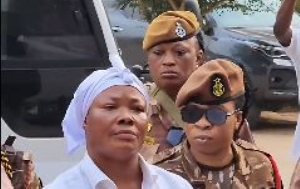Pastors have been asked to stop demanding HIV tests from would-be-couples in their churches.
Ms. Golda Asante, the Eastern Regional Director of the Ghana AIDS Commission, said that was not right – the test should not be a condition for the blessing of marriages.
The church could request for HIV test but this should not be mandatory, otherwise “it violates the rights of the couples”.
Although it was good for people to know their status, especially couples who were going to start a family, it was completely unacceptable to pressure anybody into doing that.
This is because it could fuel discrimination and stigma.
Speaking at a stakeholders meeting in Koforidua, she spoke against the situation where some pastors refused to officiate marriage ceremonies on the excuse that either the couple or one of them had declined to go for the test.
Ms. Asante said the expectation was that under the global agenda “90-90-90” about 90 per cent of all Ghanaians would know their status by year 2020.
Additionally, 90 per cent those, who tested positive, would be on anti-retroviral therapy (ART) treatment and 90 per cent of infected persons, would have their viral loads suppressed.
She acknowledged that knowing one’s status was critical to the HIV and AIDS response - preventing mother to child transmission, it should be voluntary.
Mr. Victor Brobbey said the law provided for the right to privacy and confidentiality.
She called for strong support for people living with the disease to protect their rights through institutions like the Commission on Human Rights and Administrative Justice (CHRAJ) and Legal Aid.
Attending the meeting were district focal persons on HIV from across the region, people living with HIV, civil society organizations (CSOs), the clergy and traditional authorities.
General News of Friday, 30 March 2018
Source: ghananewsagency.org













